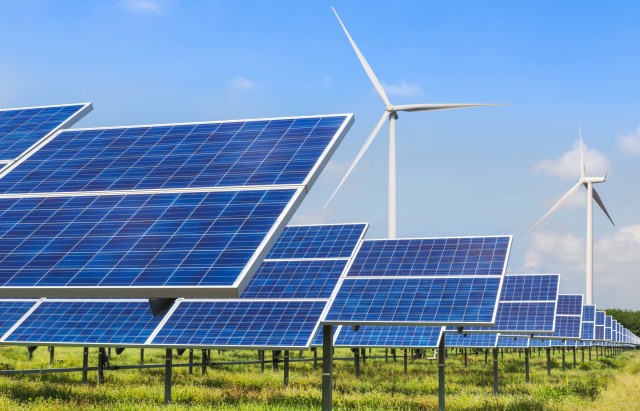Analyst firm Ember has released a report ahead of the Summit on the Future of Energy Security in London on 24-25 April 2025 being hosted by the International Energy Agency and the UK government.
The report said 74 percent of the global population lives in countries that are net importers of fossil fuels, showing widespread energy dependence.
52 countries import over half their primary energy from fossil fuels; 20 percent of global GDP comes from economies with over two-thirds energy import dependency.
Fossil fuel imports have grown 12-fold since 1960 and now provide 37 percent of primary energy worldwide.
Only 12 countries supply 80 percent of net fossil fuel exports, highlighting concentration and geopolitical risk.
Every country has enough renewable energy potential to meet its total energy demand; 92 percent can meet 10 times their energy demand.
Global solar and wind resources are nearly 100x current global energy demand and 120x fossil fuel production.
Renewables shift import costs from recurring fuel to one-time technology; a solar panel’s cost pays back in a year versus annual gas imports.
A $1 import of solar tech offsets $1 in annual gas imports for equivalent electricity output.
Fossil fuel prices are volatile: European gas rose 59 percent in 2024; TTF benchmark remains ~2x pre-crisis levels.
Maritime oil trade bottlenecks (Strait of Malacca 31 percent, Hormuz 27 percent, Suez Canal 11 percent) are ongoing security vulnerabilities.
Renewable technologies are on a deflationary cost curve: 2024 saw the biggest battery pack price drop since 2017 (20 percent).
Solar and wind have curbed fossil electricity growth by nearly two-thirds in a decade.
EU avoided €59 billion in fossil imports since 2019 from added solar and wind.
Turkiye avoided $15 billion in gas imports via renewables over 2.5 years.
UK EVs and heat pumps cut fossil use equivalent to 14 million barrels of oil in 2023.
Current global solar and wind output could fully displace gasoline if used in EVs.
Electrification (EVs, heat pumps, renewables) can cut net fossil imports by 70 percent, saving $1.3 trillion annually.
Main savings from EVs replacing imported oil (33 percent), renewables displacing imported fossil power (23 percent), heat pumps replacing imported heating fuels (14 percent).
Fossil fuels are like renting: recurring cost, volatility, dependency. Renewables are like owning: upfront cost, long-term stability.
Electrotech offers the fastest route to energy independence amid growing global import risks and political uncertainty.
Dave Jones, chief analyst at global energy think tank Ember said: “Fossil fuels are like renting a home, renewables are like owning one. The difference is simple: with fossil fuels you keep paying, prices are out of your control and the landlord can end the contract when they like. Renewables are an upfront investment, but provide long-term stability and independence. While clean energy infrastructure may require initial investment, it frees nations from volatile fuel imports and recurring costs, unlike fossil fuels, which are a permanent economic drain that keeps you dependent on an external force.”
Baburajan Kizhakedath

